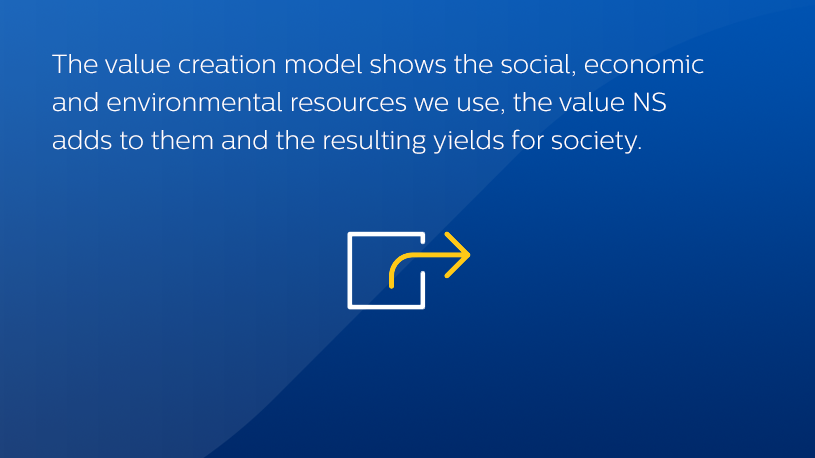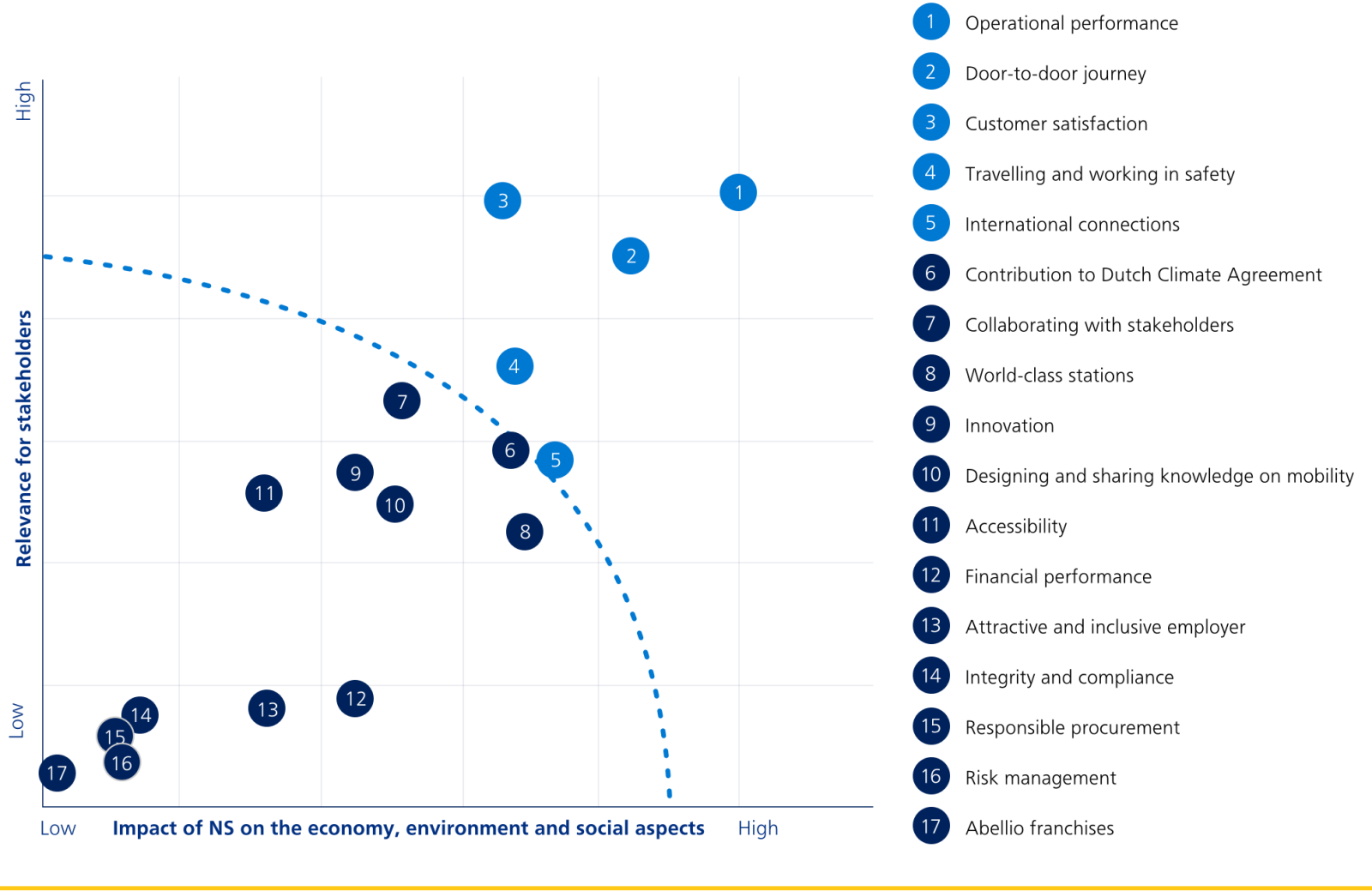Each year, NS provides sustainable mobility to millions of passengers in the Netherlands. In doing so, we contribute to the accessibility and economic development of cities and regions, and to the country’s climate goals. In our annual report, we report on the subjects that our internal and external stakeholders feel to be relevant and that enable us to create value for Dutch society. The value creation model determines the structure of our report. In 2020, we recalibrated our material relevance analysis to bring it more in line with our value creation model. In this chapter we will identify the social, economic and environmental resources we use, how we add value to them and which topics our stakeholders hold to be of material relevance for our organisation.
Input
To make our business model work as effectively as possible, we depend on key inputs such as people, trains and technology. As a carrier, we could not for instance function without our people and their knowledge. But other inputs are important too, such as energy (e.g. from wind) for powering our trains.
Business model
The main foundation of the value creation model is our business model. Our mission, ambition and underlying core activities serve as the input for our strategy.
Output
The activities in our business model have a variety of internal and external outcomes. These include our financial results, for example. We also provided an average of 1.3 million train journeys a day (before the COVID-19 outbreak). We have high employee satisfaction scores and most of our trains run on time.
Our impact
Our impact on our environment is considerable, given the fact that mobility generates huge economic and social benefits for the Netherlands. At the same time, however, we also have a considerable ecological footprint, as we use space and raw materials. In addition, travelling takes time. If we are to continue facilitating travel in future and keep the Netherlands mobile, it is important for us to understand the effects of our business model on society and to keep using that knowledge as a control parameter. We know, for instance, that the social costs of a train journey are lower than those of a trip by car or plane. Where the environment or safety are involved, we will be able to improve our social return by increasing the share of rail travel in overall mobility growth.
Value creation model

Material relevance matrix

The Y-axis shows the material relevance of topics for NS according to our external stakeholders. The X-axis shows the material topics which, according to NS's senior management, offer the best potential for NS to make a positive contribution to the economy, the environment and social aspects in the Netherlands.
Once every two years, NS recalibrates the definitions underlying the material relevance matrix, on the basis of the NS strategy comparison with peers and relevant developments in society at large. The material relevance matrix for 2020 has also been recalibrated in this way. We do this in order to highlight the topics that are of material significance for our organisation and, as such, determine our strategy and the content of our reporting. An independent study and internal consultations have yielded a total of 17 themes that are materially relevant for NS. These are largely the same as the themes in our previous material relevance matrix. However, their wording and definitions have been adapted to bring them in line with our revised strategy and our value creation model. Two new themes have been added. We added ‘Designing and sharing knowledge on mobility’ because it fits in with the role of NS within several alliances and its new strategy, and 'Responsible procurement’ because our peers also recognise this as a material topic.
To help us identify crucial policy priorities, we asked our Dutch stakeholders to list the themes they believe are the most relevant to NS. The stakeholder groups we consulted are administrative stakeholders, sector associations and collaboration partners, consumer associations, partners in the chain, suppliers, NGOs, political stakeholders, ProRail, trade unions and academic experts. In addition, in an internal round of consultations we examined the impact of NS on each of those themes. The results of this study are reflected in the above material relevance matrix, with the most important themes for NS shown top right. The matrix has been submitted to and validated by the Executive Board.